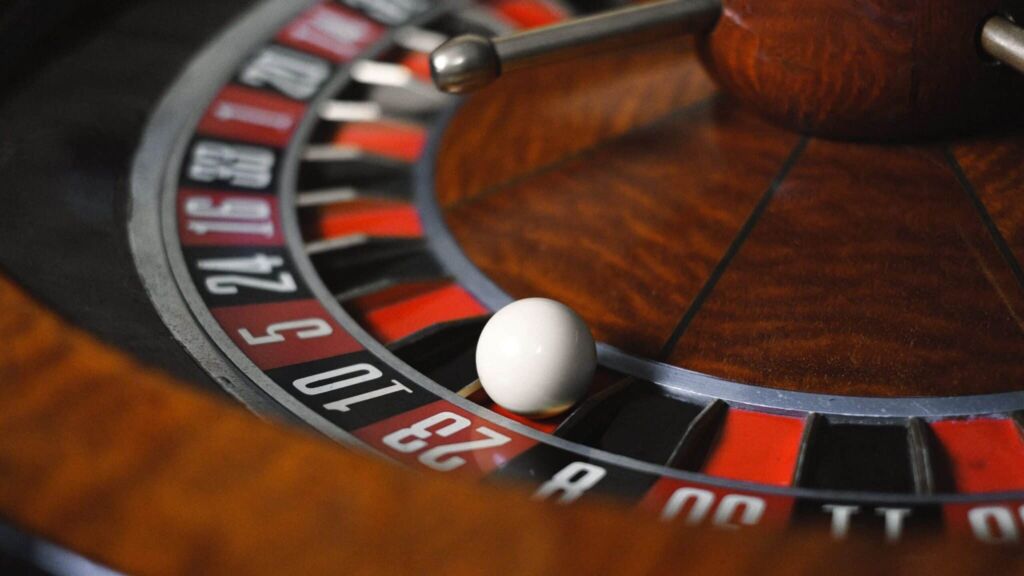Delving into the probabilities of success in various casino games is indispensable for anyone treading the path of gambling, whether you're setting foot for the first time or refining your strategies as an experienced player. This all-encompassing guide seeks to unveil the mysteries behind gambling probabilities, delivering insights to aid in informed decision-making and improving comprehension of risk vs. reward.
A Player's Essential Guide to Understanding Casino Game Probabilities
Casinos captivate with the thrilling chance of winning, but the underlying reality is guided by statistics that set the stage for your potential success. Understanding these odds is important for players of all experience levels, encompassing more than just gaming tactics—it's about playing wisely and setting realistic expectations.
Casino games draw players in with a natural advantage the house holds, ensuring the odds favor the casino over extended play. However, how this advantage plays out varies between games, impacting your strategies and winning probabilities.
Blackjack: The Harmony of Skill and Winning Chances
Regarded as one of the most player-friendly games in terms of odds, blackjack blends luck with strategy. Unlike pure chance games, skilled blackjack players can greatly reduce the house's advantage through strategic play.
At its heart, blackjack is simple: outscore the dealer by holding a hand valued closer to 21 without exceeding that number or by the dealer going bust. Strategy unfolds as players consider options like hitting, standing, doubling down, or splitting pairs.
Optimal blackjack play, often taught through strategy charts, demonstrates the best moves for every situation based on your hand and the dealer’s visible card. Using basic strategies can minimize the house advantage, sometimes reducing it to about 1% or less with certain table rules.
Rule variations in blackjack affect odds notably. For instance, tables where dealers stand on a soft 17 generally offer players a slight edge over those where dealers hit. The number of decks can also influence odds, although knowledgeable strategy use can adjust for these differences.
Advanced techniques like card counting have the potential to tip the scales favorably for blackjack players, but mastering these requires skill, practice, and is usually discouraged or banned by casinos.
Roulette: Grasping the Chances on the Spinning Wheel
As a luck-based game, roulette involves betting on where a ball will land on a rotating wheel divided into numbered sections. Odds in roulette are dictated by wheel designs, differing notably between the European and American versions.
European roulette features a 37-pocket wheel labeled 0 to 36, whereas American roulette adds a 38th pocket labeled '00', significantly affecting the odds.
In European roulette, the house advantage is around 2.7% for most wagers, driven by the single zero which reduces the probability of winning even-money bets. An example includes a red color bet offering 18 winning numbers out of 37 total.
American roulette, with the '00' pocket, doubles the house advantage to approximately 5.26%, making even-money bets riskier than in the European version.
Roulette offers different bet types with varying odds and payouts; inside bets target specific numbers and offer higher payouts with lower odds, whereas outside bets have better winning chances but smaller payouts.
Straight-up bets in European roulette that land on a single number pay a ratio of 35 to 1, reflective of a 1-in-37 winning chance, while even-money bets typically return 1 to 1.
Baccarat: Effortless Play with Diverse Probabilities
While baccarat comes across as elite and suited for high stakes, its rules are elegantly basic. Players place bets predicting whether the 'Player' or the 'Banker' will win or whether it will tie, aiming for a hand value closest to 9.
Odds shift in baccarat based on chosen bets. The 'Banker' bet is statistically optimal with a house edge of approximately 1.06%, while the 'Player' bet carries a slightly higher house edge.
Though the 'Tie' bet promises larger payouts, frequently 8 or 9 to 1, it comes with over a 14% house edge, presenting a less attractive option compared to 'Banker' or 'Player' bets.
Interestingly, the 'Banker' bet isn't inherently in the casino's favor; instead, its lower house edge stems from baccarat rules rewarding the 'Banker' role slightly more frequently. To manage this, casinos typically impose a small commission on banker wins.
Minimal player input defines baccarat, aside from picking bets. Gaining insight into odds associated with each type of bet helps make better decisions and manage your gaming funds.
Slot Machines: The Realm Filled with Mystery and Jackpot Dreams
Slot machines are synonymous with casinos, celebrated for their visual allure, sound effects, and the allure of striking big jackpots. However, they also rank among games with the highest house edges.
Slot machines follow intricate algorithms and random number generators to determine outcomes, establishing them as unpredictable games based purely on luck.
Depending on factors like machine type and casino settings, the house edge in slots can vary greatly, typically lying between 5% and as high as 15% or even more, with some reports suggesting edges up to 25%.
Return to Player (RTP) percentage is a notable term in slot gaming, reflecting the proportion of bet money a machine is calibrated to return to players over time. An RTP of 95% implies a $95 return on every $100 wagered, though this is an average over extensive play.
Progressive slots, linked in a network, present possible life-altering wins, with prize pools expanding as players engage. Yet, such slots typically offer lowered base game odds and higher house edges to fuel hefty jackpots.
Due to their significant house edge and inherent randomness, slots are generally seen as less favorable among casino games in terms of winning odds. Nonetheless, their entertainment value and jackpot allure remain irresistible to many.
Craps: Maneuvering through a Game of Dice and Chances
Craps is a lively dice game with a plethora of bet options each offering different odds. Initially overwhelming to new players due to its diverse betting field and language, understanding basic craps odds can enhance enjoyment.
The Pass Line bet, fundamental to craps, invites players to bet that the dice shooter wins. This bet carries a house edge around 1.41%, while the Don’t Pass bet anticipates a shooter loss and offers a slightly better house edge of 1.36%.
Come and Don’t Come bets echo Pass and Don’t Pass but occur after the come-out roll, maintaining similarly low house edge levels.
In craps, proposition bets are often found in the table's center and are known for offering higher payouts. However, they have a large house advantage, frequently surpassing a 10% to 15% edge, which makes them less favorable for most players since their chances of winning are rather slim.
Craps features unique bets known as Odds bets, which players can pair with Pass Line, Don’t Pass, Come, and Don’t Come bets. What sets Odds bets apart is that they pay at true odds, meaning the casino has no statistical advantage. Leveraging these Odds bets is a crucial tactic for craps lovers aiming to minimize the overall house edge.
Craps is known for its diverse betting options, with each bet having different odds. Players can decide how risky they want to be, based on the house edge and potential returns. Focusing on bets like Pass Line, Don’t Pass, or combining them with Odds bets, generally improves your chances in the game.
Poker: The Influence of Player Expertise and the Casino's Rake
What distinguishes poker from typical casino games is that players are pitted against each other, rather than the establishment. The casino profits not by competing directly but by taking a 'rake'–either a portion of the pot or a set amount for each hour of gameplay.
In poker, outcomes are largely influenced by the players' skill levels, tactical approaches, and in-game decisions, unlike games with predetermined odds. The final results hinge on factors like card distribution, betting trends, and psychological plays, including bluffing.
Calculating a house edge in poker is trickier compared to games like blackjack or roulette because the rake is the casino's profit source. The effective house edge depends on how the rake is structured and a player's proficiency relative to their opponents.
Players proficient in poker are often able to consistently beat those with less experience, turning it into a potentially lucrative activity. Nonetheless, one should remember that poker includes elements of variance and luck, meaning even the best players might occasionally lose.
Each poker variation, such as Texas Hold’em, Omaha, and Seven-Card Stud, has its own set of rules and strategies, but a common thread is the pivotal role of player skill in determining the outcome.
The advent of online poker has made the game accessible globally, exposing players to a vast array of skill levels. Consequently, maintaining a competitive edge requires players to keep honing their skills.
Keno: A High-Stakes Lottery Experience with Elevated House Advantage
Playing keno involves selecting numbers and hoping they match the ones drawn by the casino. Known for its high house edge compared to most casino games, keno's odds and payouts vary significantly.
The house edge in keno is substantially high and can often range from 20% to 35% or even more, varying based on the particular keno game and the number of spots selected. For certain keno versions, some indicate that this edge might reach as high as 25%.
Keno's payoff structure mirrors the slim odds of winning large. Despite the potential for significant earnings through hitting numerous matching numbers, the probability of doing so is pretty slim.
To illustrate, striking all 20 numbers in a 20-spot keno game has exceedingly low odds, often one in billions. Even hitting fewer, say 8 or 9 of 20 numbers, presents odds that are unfavorable compared to other games.
People are drawn to keno for its straightforward gameplay and the possibility of significant payouts from minimal bets. But notably, it carries one of the highest house edges, making it statistically less favorable.
The Experience Beyond Numbers: Joy and Safe Gambling Practices
Knowledge of odds is crucial for making smart casino decisions, yet it is also vital to remember that gambling should primarily serve as enjoyment. The house's edge implies that the casino will likely profit in the long term.
Responsible gambling revolves around setting boundaries on spending, recognizing the inherent risks, and never betting more than affordable losses. Pursuing losses or viewing gambling as a consistent income source can result in financial troubles or worse.
Some casino games are more entertaining and socially engaging than others. For instance, craps and poker offer more interaction, while options like slots and roulette are quieter pursuits. Regardless of odds, choosing games you find joy in can enrich your entire casino experience.
The most effective attitude towards casino gaming blends awareness of odds with responsible gambling, centering on fun and entertainment over simple winning. Familiarity with the dynamics at play enables you to be a savvier player, heightening your enjoyment.
By delving into how odds operate across various casino games, from the strategic skill required in blackjack and poker to the sheer luck in roulette and slots, players cultivate an understanding of probabilities. This awareness is not just about making informed decisions but also encourages a responsible and enjoyable gambling approach.
Whether you enjoy games with minimal house edges that require strategy or prefer the thrill of high-risk gambles, understanding the underlying odds is critical for approaching the casino landscape with assurance and practical expectations. Keep in mind, the goal is to have fun and revel in the excitement, with a firm grasp on the winning chances of each option.
In summation, while the temptation to win is powerful, balancing this with a perspective that combines knowledge of odds and responsible gambling practices is the best way to appreciate the vast casino landscape. Embrace the fun, grasp the odds, and gamble smartly.



